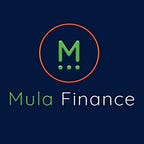MULA FINANCE, WALLET X TOKEN — REVOLUTIONIZING PAYMENT SYSTEMS IN AFRICA
Financial inclusion, effective payment systems and expedited cross-border transactions in Africa are needed now more than ever to accommodate our increasing population, the corresponding growth of especially Small and Medium Scale Enterprises (SMEs) and to propel the continent on its journey to global integration.
We are at a time very much in need of speedier delivery going hand-in-hand with security, safety, and ease and without digging holes into your pocket or purse. Unfortunately, the traditional way of banking falls short of adequately catering for these. It is either cross-border transactions take forever to go through, or transfer rates are disturbingly exorbitant, or accessibility becomes impossible, or all of these and more, such as unnecessary third-party interventions, combine to create a frustratingly sloth-like financial ecosystem.
These overbearing issues drove us at MULA Finance to devise a solution that transcends borders and cures the many problems plaguing the African mobile money payment system. What we’re introducing is freedom and in here, we will look at what our project entails and how this is a big win for the continent.
Now, let’s start with the basics.
What is MULA Finance About?
MULA Finance is a money transfer solution entity that strives to decentralize the current centralized nature of mobile money payments and remittance services in Africa. We are a team of seasoned individuals with several years of practical experience in the fintech and blockchain industry and in business management. Our operation is designed to help individuals make cross-border financial transactions without breaking a sweat or having to deal with the many restrictions highlighted.
How exactly are you planning to do this?
Before getting into the specifics, let’s acknowledge one thing that has undoubtedly proven remarkable in most African countries in the financial space — mobile money transactions. Success stories have been recorded and continue to be told in Ghana, Kenya, DR Congo, Tanzania, and Uganda, among others. However, these milestones have only been limited to intra-country transactions. But what about cross-border payments? That is where the problem originates. There is little to no room for smooth transactions partly because of the different currencies that are at play and of course, the superfluous financial infrastructure in place.
Now, this is how MULA Finance is remedying this deficiency: we have designed the MULA Wallet, an app that draws on the existing mobile money systems and connects mobile money agents. On the wallet, an individual in say, Ghana, can exchange their local currency (cedi) for our MULA tokens, send them over to someone elsewhere who will then convert the tokens back to say, the South African Rand, with the cash redeemable from any directly integrated mobile money wallet or with a participating agent. Through this, we’re working towards opening up Africa’s financial market for more positive socio-economic impact.
What About Transaction Fees?
Here’s some good news: unlike traditional bank transfers and remittance services which do not only take days to go through but also siphon fees as high as 3–8% of the amount, transactions with MULA only require less than 30 minutes as processing time and 0.5% as charged rate. Transfers with MULA are cheaper and more expedient, essentially giving you better value for your money.
Great. But what is particularly different about MULA Finance with the world of cryptocurrency already having so much to offer?
For one, our focus on the African continent. Our primary objective is to open up its financial payment section not just to itself but to the entire world. We are bringing blockchain access to the grassroot as a payment facilitating solution transparent to the user and not in its technically complicated form. This is why we are leveraging already existing mobile money systems to realize this.
NFTs continue to gain great traction in the world of finance and gaming. Has MULA tapped into this?
Well, yes we have. We strongly believe that Blockchain gaming through the concept of NFT gaming is going to have astronomical presence and endless opportunities moving forward and we already have plans underway to be a part of this in addition to solving the big problems of payment and SME expansion in Africa.
With that, our NFT games integrate existing well-known games which in a way, reward people who are already familiar with those games as seen in many P2E NFT games. Our incorporation of basic P2E concept with VR allows both investment in metaverse assets and immersion in the metaverse as a source of earning and revenue for the asset owners and players. This is well interconnected with the MULA wallet.
For new users, it doesn’t take much effort to get acquainted with our games because chances are, you’re already familiar with them. We want to make NFT gaming as easy, fun, stress-free, and rewarding as possible.
What security protocols are in place to protect the privacy, assets, and products of your commercial partners and users?
Safety protocols are strongly woven into the whole foundation of our platform. One of the most important things about the MULA Wallet is that it is 100% non-custodial. Put differently, key private information is not available on our server; we only serve as an interface to the blockchain. Essentially, there is a strong fundamental pillar for security and no room for customer vulnerability.
Now, there is more excitement to MULA than what we’ve discussed in here. We’ve covered other aspects of this whole project in our other posts. Check them out!
